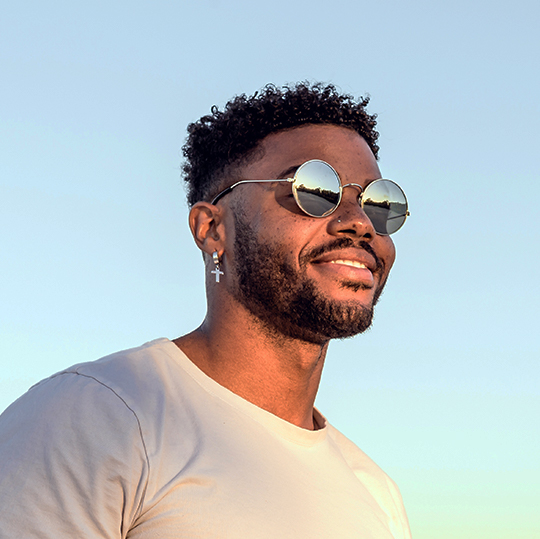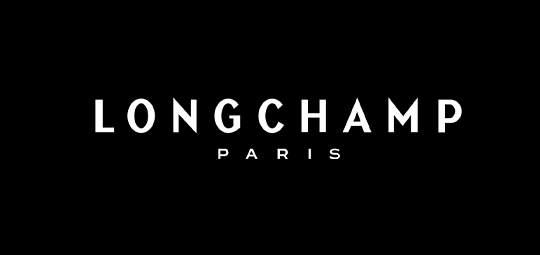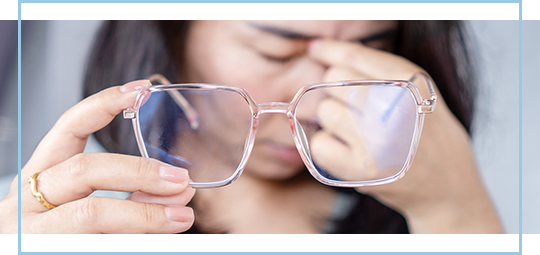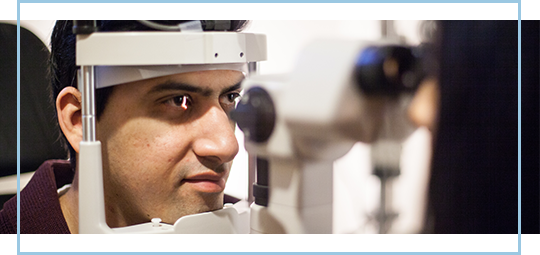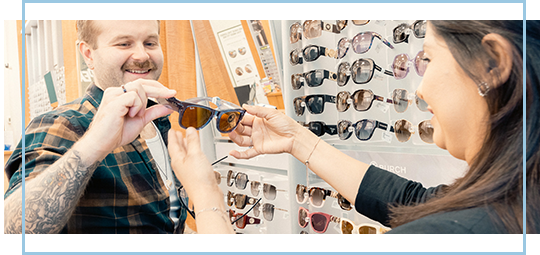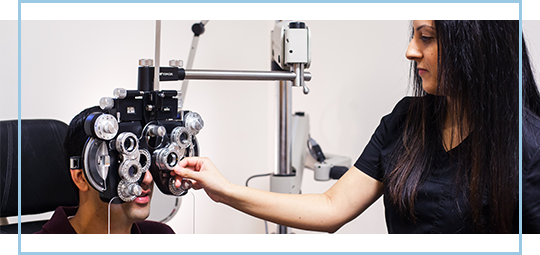It’s Never too Early for Eye Health
It’s never too early to focus on your children’s eye health and vision. Their sense of sight is important at every age and every stage of development.
Children might be nervous about their eye exam. Rest assured, our optometrists have experience with children and can put them at ease. It’s critical to give them a positive impression of optometrists early in life so they feel comfortable coming for regular appointments.
If your child does need glasses, we offer a wide selection of colours and styles to help them smile and see clearly.
Book their appointment today to set them up for success—and a lifetime of healthy vision.
Book AppointmentWhen Do Children Need Eye Exams?
The Canadian Association of Optometrists recommends that children have exams at the following intervals:
- A comprehensive exam to establish a baseline between the ages of 6 and 9 months
- Another comprehensive exam as they grow and develop between the ages of 2 and 5
- Annual, comprehensive exams from age 6 and continuing until adulthood
Healthy vision can help children succeed in life and academics. Beyond just seeing what’s in front of them at school, visual skills are needed for social, cognitive, and motor skill development.
Book AppointmentChildren’s Vision Issues & Stages of Sight
There are several vision conditions that develop in childhood and affect eyesight. Our skilled optometrists can diagnose and recommend treatment for a variety of children’s vision issues, including the following.
Myopia (Nearsightedness)
Myopia (nearsightedness) begins in childhood and can continue to develop until vision stabilizes in adulthood. High myopia increases the risks of more serious conditions later on, and children with undiagnosed myopia can struggle in school.
Many children with myopia received a diagnosis before the age of 12, making children’s eye exams a key component of addressing the condition early on. While it cannot be cured, myopia can be controlled if detected early.
Strabismus (Crossed Eyes)
A muscle condition known as strabismus is usually the culprit when the eyes are crossed. It generally means the eyes are not working together properly. Sometimes, the condition is evident as one eye is turned in a different direction.
Strabismus does not get better on its own and requires intervention from an optometrist to rectify.
Amblyopia (Lazy Eye)
Amblyopia, also known as a lazy eye, occurs when there is a large difference in prescription between each eye. Over time, the connection between the brain and the affected eye decreases, as one eye consistently provides poor images.
Treatment, such as patching the good eye and forcing the brain to connect with the weaker one, can typically resolve this condition.
Convergence Insufficiency
When blurry or double vision is present, convergence insufficiency may be the reason. Convergence insufficiency occurs when the eyes don’t work together while looking at nearby objects or up-close work.
An eye exam is imperative to detect convergence insufficiency, as it occasionally presents without visual cues.
Stages of Sight
There are many milestones in a baby’s visual progression. Here’s what to expect at some important stages:
- Birth to 1 Month: Your baby should be staring at bright lights or faces, albeit for a short time.
- 1 to 3 Months: They’ll begin to look toward sounds and follow objects horizontally.
- 3 to 5 Months: Babies begin to reach for objects and see differences between colours.
- 5 to 7 Months: Hand-eye coordination will begin to develop and your baby should start looking at distant objects.
- 7 to 12 Months: Depth perception, focusing, and other visual skills should be developed, and your baby might begin to copy facial expressions they see.
As children get older, you can help encourage their healthy visual development by playing look-and-find games like Where’s Waldo?, doing word searches and maze games together, and limiting their screen time.
To monitor your child’s visual development at the appropriate pace, be sure to bring them in for comprehensive eye exams as well.
How Do I Know If My Child Needs Glasses?
If they are experiencing a vision issue, children are often unable to articulate the problem—they might not even know there is a problem. Unlike adults, children have not established a baseline of what proper vision looks like for them.
Bringing your child for regular eye exams can help establish that baseline. We can help detect any vision problems early on. Book their appointment today!
Book AppointmentOur Brands
